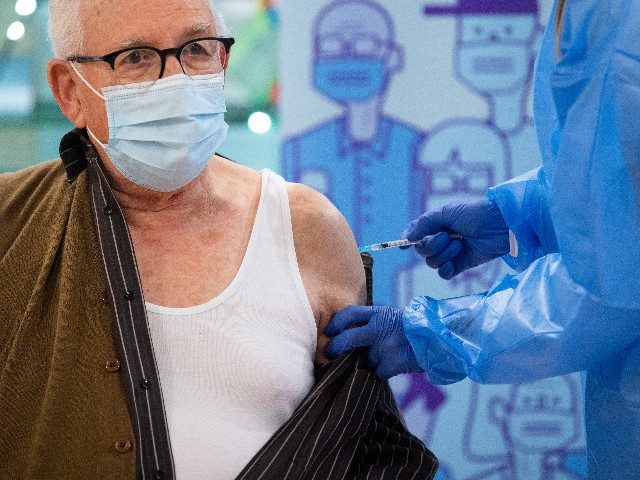Spain will keep a registry of people who refuse to have a vaccination for the Chinese coronavirus, and will share the data with other European Union member-states.
Health Minister Salvador Illa announced the plans on Monday, saying that while the vaccine would not be mandatory and there would be no repercussions for refusing the injection, the government would be tracking those who declined to have it.
“What will be done is a register, which will be shared with our European partners… of those people who have been offered it and have simply rejected it,” Mr Illa said during an interview with La Sexta television channel on Monday, according to the BBC.
The minister said that the register was to avoid confusion in record-keeping, of why some people are vaccinated and others not, saying: “People who are offered a therapy that they refuse for any reason, it will be noted in the register… [so] that there is no error in the system, not to have given this person the possibility of being vaccinated.”
He added that the data would not be shared with members of the public, including employers.
“It is not a document which will be made public and it will be done with the utmost respect for data protection,” Mr Illa said.
More than one-quarter, 28 per cent, of Spaniards have said they will not have the vaccine, according to a recent poll. However, that figure fell from nearly half — 47 per cent — in November.
The announcement came the same day that the health minister revealed that American pharmaceuticals giant Pfizer had delayed delivery of a new shipment of its vaccine — which it developed with German company BioNTech — by one day due to logistics problems related to refrigeration.
The Pfizer-BioNTech vaccine must be kept at minus 70 degrees Celcius ( minus 112 Fahrenheit), while the British product by AstraZeneca — which is currently being assessed by the UK’s Medicines and Healthcare Products Regulatory Agency — can be stored in standard medical fridges. If approved, the vaccine, developed in partnership with the University of Oxford, would be the second coronavirus jab to be approved for use in the United Kingdom.
UK Minister: You Might Be Banned from Venues Without Vaccine Passport https://t.co/f0UOh7YnkY
— Breitbart London (@BreitbartLondon) December 1, 2020
The UK’s Vaccine Minister Nadim Zahawi said earlier this month that while the shot would remain voluntary, he predicted that private businesses — such as cinemas, airlines, or sports clubs — might demand proof of vaccination before offering service, banning those who are not immunised.
While Mr Zahawi admitted that the government was “looking at the technology” to prove vaccination — comparable to the NHS’s test and trace app, which tracks the spread of the Chinese virus — senior minister Michael Gove denied that any such plans were in place.
Undertaking what appeared to be damage control for the vaccine minister’s remarks, Mr Gove said the following day: “I certainly am not planning to introduce any vaccine passports and I don’t know anyone else in government (who is).”
But less than one week later, minister James Cleverley would not rule out whether the coronavirus vaccination cards — to be given out by the NHS — would be repurposed as vaccine passports to enter restaurants or cinemas. The cards are intended to be used to remind patients of their appointments to receive the second jab, but Conservative MP David Jones warned that there is a “danger” that “people may well be told, well you can’t come in unless you produce your card”.
The British government has also been sending out mixed signals on “immunity passports” — which would prove whether a person had tested negative for Chinese coronavirus. Last week it was revealed that the government had awarded contracts to two firms to develop mobile phone app “freedom passports”, with a QR code identifying a person and their immunity status.
The Department of Health and Social Care denied that the government would roll out the system any time soon, but claimed it was merely conducting “exploratory work”, saying: “It is about looking at ways we could use this in future.”
UK officials are also considering “vaccine stamps” for passports, allegedly to boost the travel industry.
UK Govt Begins Work on QR Code Coronavirus ‘Freedom Passports’, Denies System is ‘Imminent’ https://t.co/jDZvgFCsXO
— Breitbart London (@BreitbartLondon) December 23, 2020

COMMENTS
Please let us know if you're having issues with commenting.